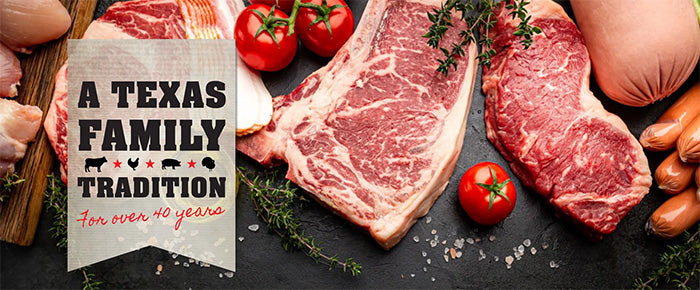Experience the Flavor and Quality at Bagley Meat Market Edwardsville IL
Experience the Flavor and Quality at Bagley Meat Market Edwardsville IL
Blog Article
Why Purchasing at a Neighborhood Meat Market Guarantees Fresh, High-Quality Cuts
Buying at a local meat market provides distinct advantages that frequently go unnoticed by consumers accustomed to bigger retail chains. The effects of picking neighborhood prolong past prompt advantages, triggering a closer evaluation of what this choice really implies for both consumers and the neighborhood economic situation.
Advantages of Regional Sourcing
In the realm of food procurement, the benefits of local sourcing stand apart prominently. By buying meat from neighborhood markets, customers acquire direct accessibility to items that are typically fresher and a lot more tasty than those found in bigger, business grocery stores. Local sourcing reduces the time and distance food travels from farm to table, which not only improves taste yet likewise preserves dietary value.

In addition, local sourcing often offers openness pertaining to the beginnings of the meat. Customers can ask about the farming practices utilized, animal welfare requirements, and whether the meat is grass-fed or organic. This details equips consumers to make educated decisions lined up with their values.
High Quality Control Specifications
Regional meat markets commonly stick to rigorous quality assurance standards that ensure the items provided satisfy high security and freshness benchmarks. These criteria usually include various phases of the meat manufacturing process, from sourcing to handling and storage.
First, regional markets typically establish rigorous vendor requirements, making sure that only respectable farms and manufacturers are used - bagley meat market edwardsville il. This lowers the probability of contamination and promotes greater animal well-being requirements. In addition, numerous neighborhood meat markets carry out regular inspections to verify that the meat is refined under sanitary problems, even more decreasing health and wellness threats
Temperature control is an additional vital aspect of quality assurance. Regional meat markets regularly keep an eye on refrigeration systems to keep optimal storage space temperatures, ensuring that meat stays fresh and secure for intake. Additionally, the application of traceability systems permits markets to track the origin of their products, supplying openness and liability.
Finally, personnel at neighborhood meat markets are frequently trained to identify signs of putridity and comprehend correct handling strategies. This dedication to quality assurance not just boosts the total standard of the meat but also promotes consumer trust fund, making regional meat markets a dependable resource for high-quality cuts.
Sustaining Neighborhood Farmers
Sustaining local farmers is necessary for cultivating a lasting food system and enhancing area strength. When customers pick to go shopping at neighborhood meat markets, they straight add to the source of incomes of farmers in their area. This not just sustains the local economy but also strengthens the farming industry, guaranteeing that it remains viable and dynamic.


Additionally, supporting regional visit the site farmers cultivates a sense of community and link in between consumers and producers. It urges openness in food sourcing and infuses trust, as customers can establish connections with the individuals who increase their food. This straight link inevitably leads to a more engaged and notified public, which is vital for supporting for lasting farming techniques in the future.
Sustainable Practices
Sustainable practices in meat markets play a vital function in advertising environmental stewardship and ensuring animal welfare. Local meat markets usually focus on sourcing their products from ranches that apply sustainable and ethical farming approaches. These techniques consist of rotational grazing, which aids maintain soil health and lowers carbon exhausts, along with minimizing making use of antibiotics and hormones in animals.
Additionally, local meat markets usually highlight openness in their supply chains. Consumers are provided with details pertaining to the beginning of their meat, enabling them to make educated options that line up with their worths. By supporting regional farmers who exercise lasting techniques, consumers add to the preservation of biodiversity and the decrease of transport exhausts linked with long-distance meat distribution.
In addition, lots of local meat markets take part in waste decrease techniques, such as making use of every part of the pet and advertising off-cuts that could otherwise go unsold. By cultivating a more lasting method to meat consumption, these markets not only supply premium products however likewise add favorably to the environment and animal well-being. Essentially, purchasing at a local meat market aligns consumers with a more comprehensive movement in the direction of responsible and honest food sourcing.
Personalized Client Service
Shopping at a meat market commonly encompasses even more than simply the items provided; it is likewise concerning the experience and the relationships developed between clients and team. Personalized client solution is a characteristic of local meat markets, establishing them aside from larger grocery store chains. Educated staff make the effort to comprehend specific customer choices, making certain that each go to is tailored to specific requirements.
Consumers profit from expert guidance on cuts, cooking techniques, and prep work tips, fostering a sense of count on and loyalty. This individualized communication allows clients to ask inquiries and look for suggestions, bring about notified buying decisions. Personnel frequently remember regular customers and their choices, developing an inviting ambience that grows neighborhood ties.
Furthermore, individualized service includes click this site unique demands, such as custom-made cuts or particular preparation techniques, which larger sellers may not suit. This degree of interest reinforces the commitment of regional meat markets to quality and customer satisfaction.
Fundamentally, individualized client solution not just improves the shopping experience yet likewise ensures that consumers entrust to the very best products suited to their cooking requirements, making pop over to this web-site every visit a fulfilling one.
Verdict
Supporting regional farmers cultivates neighborhood relationships and strengthens the local economy, while sustainable practices contribute to ecological stewardship. Furthermore, individualized client service enhances the purchasing experience, making local meat markets a favored choice for customers seeking both top quality and moral considerations in their food sourcing.
The implications of picking neighborhood extend beyond immediate benefits, triggering a closer assessment of what this option genuinely suggests for both customers and the neighborhood economic climate.
Supporting regional meat markets also contributes to the neighborhood economic situation. Local meat markets often check refrigeration systems to maintain optimum storage temperature levels, guaranteeing that meat remains fresh and risk-free for consumption.Regional farmers are usually extra attuned to the specific needs of their neighborhoods, expanding crops and increasing livestock that line up with neighborhood tastes and preferences. Sustaining local farmers promotes community connections and enhances the regional economy, while sustainable techniques add to environmental stewardship.
Report this page